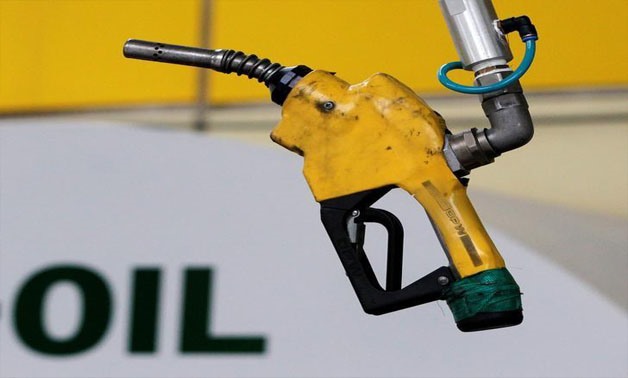
A gas pump is seen hanging from the ceiling at a petrol station in Seoul June 27, 2011. REUTERS/Jo Yong-Hak/File Photo
SINGAPORE - 20 March 2018: Oil prices rose by almost 1 percent on Tuesday, lifted by a weak dollar, tensions in the Middle East and concerns of a further fall in Venezuelan output.
U.S. West Texas Intermediate (WTI) crude futures CLc1 were at $62.59 a barrel at 0656 GMT, up 53 cents, or 0.9 percent, from their previous close.
Brent crude futures LCOc1 were at $66.56 per barrel, up 51 cents, or 0.8 percent.
“Tensions between Saudi Arabia and Iran gave prices some support,” said Sukrit Vijayakar, director of energy consultancy Trifecta in a note.
Futures traders also pointed to general dollar weakeness .DXY as a supporter for crude.
A weaker greenback makes imports of dollar-denominated crude cheaper for countries using other currencies at home, potentially spurring demand.
Worries about Venezuela’s tumbling crude production also supported oil markets.
The International Energy Agency said last week that Venezuela, where an economic crisis has cut oil production by almost half since early 2005 to well below 2 million bpd PRODN-VE, was “clearly vulnerable to an accelerated decline”, and that such a disruption could tip global markets into deficit.
Still, surging U.S. crude oil production C-OUT-T-EIA, which has risen by more than a fifth since mid-2016, to 10.38 million barrels per day (bpd), has been looming over oil markets.
U.S. output is now higher than that of top exporter Saudi Arabia. Only Russia produces more, at around 11 million bpd, although U.S. output is expected to overtake Russia’s later this year as well.
Soaring U.S. output, as well as rising output in Canada and Brazil, is undermining efforts by the Middle East dominated Organization of the Petroleum Exporting Countries (OPEC) to curb supplies and bolster prices.
Many analysts expect global oil markets to flip from slight undersupply in 2017 and early this year into oversupply later in 2018.

Comments
Leave a Comment